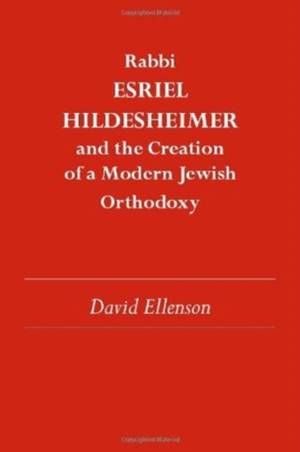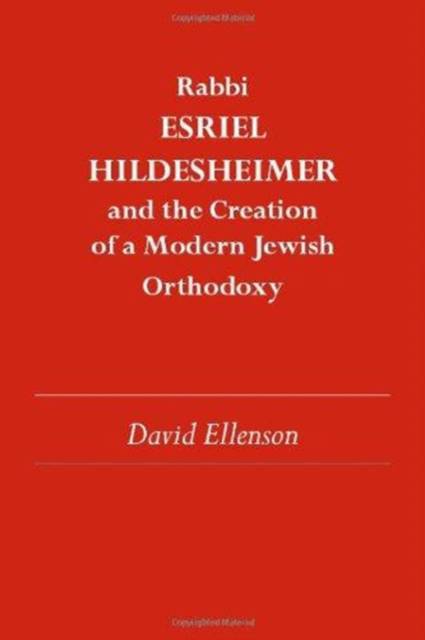
- Retrait gratuit dans votre magasin Club
- 7.000.000 titres dans notre catalogue
- Payer en toute sécurité
- Toujours un magasin près de chez vous
- Retrait gratuit dans votre magasin Club
- 7.000.0000 titres dans notre catalogue
- Payer en toute sécurité
- Toujours un magasin près de chez vous
Rabbi Esriel Hildesheimer and the Creation of a Modern Jewish Orthodoxy
and the Creation of a Modern Jewish Orthodoxy
David EllensonDescription
The story of modern Orthodox Judaism is usually told only from the perspective of Rabbi Samson Raphael Hirsch. Ellenson's work, a thorough examination of the life and work of one of Hirsch's contemporaries, Rabbi Esriel Hildesheimer, reveals another important contributor to the creation of a modern Jewish Orthodoxy during the late 1800s. like Hirsch, Hildesheirmer felt the need to continue certain traditions while at the same time introducing certain innovations to meet the demands of a modern society. This original study of an Orthodox rabbinic leader shows how Hildesheirmer's flexible and pragmatic approach to these problems continues to be relevant to modern Judaism. The way in which this book draws upon response literature for its comprehension of Hildesheimer makes it a distinctive work in modern Jewish historiography and sociology.
Spécifications
Parties prenantes
- Auteur(s) :
- Editeur:
Contenu
- Nombre de pages :
- 232
- Langue:
- Anglais
- Collection :
Caractéristiques
- EAN:
- 9780817312725
- Date de parution :
- 05-05-03
- Format:
- Livre broché
- Format numérique:
- Trade paperback (VS)
- Dimensions :
- 152 mm x 233 mm
- Poids :
- 358 g

Les avis
Nous publions uniquement les avis qui respectent les conditions requises. Consultez nos conditions pour les avis.






